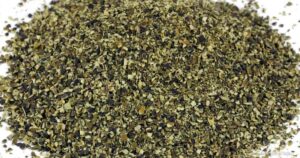 Kelp meal is an organic soil conditioner made from dried and ground-up seaweed, typically harvested from cold water oceans. It is packed with essential nutrients, making it an excellent choice for enhancing soil health and boosting plant growth. This comprehensive guide will explore how to use kelp meal in the garden and why gardeners around the world swear by its benefits.
Kelp meal is an organic soil conditioner made from dried and ground-up seaweed, typically harvested from cold water oceans. It is packed with essential nutrients, making it an excellent choice for enhancing soil health and boosting plant growth. This comprehensive guide will explore how to use kelp meal in the garden and why gardeners around the world swear by its benefits.Benefits of Using Kelp Meal in the Garden
Using kelp meal in the garden provides a wide range of benefits that can help your plants thrive. Here are some of the key advantages:
- Rich in Micro-Nutrients: Kelp meal contains over 60 trace minerals including potassium, magnesium, calcium, and iron, which are crucial for plant health.
- Improves Soil Structure: It enhances soil aeration and water retention, promoting a healthier growing environment for roots.
- Boosts Plant Immunity: Kelp naturally contains cytokinins, auxins, and gibberellins, which enhance plant disease resistance.
- Encourages Better Root Development: The nutrient-rich composition of kelp meal encourages vigorous root growth.
How to Use Kelp Meal in Your Garden
Incorporating kelp meal into your gardening routine is simple and can be done in several ways. Here’s how you can do it:
1. As a Soil Amendment
Mix kelp meal directly into the soil before planting. This can be done by sprinkling it over your garden beds and lightly working it into the soil with a rake.
2. As a Compost Activator
Add kelp meal to your compost pile to speed up decomposition and enrich the resulting compost with nutrients.
3. As a Liquid Fertilizer
Create a nutrient-rich tea by soaking kelp meal in water for 24 hours. Strain the mixture and apply it directly to plant roots or as a foliar spray.
4. In potted Plants
For indoor or container plants, sprinkle kelp meal over the potting mix to provide a slow-release of nutrients.
Tips for Effective Use of Kelp Meal
To maximize the benefits of kelp meal, here are some additional tips:
- Start with Quality: Always purchase high-quality, organic kelp meal from reputable suppliers to ensure it is free from contaminants.
- Follow Instructions: Adhere to recommended application rates as too much can potentially disrupt soil balance.
- Combine with Other Fertilizers: Use kelp meal alongside other organic fertilizers like fish meal or bone meal for a balanced nutrient supply.
